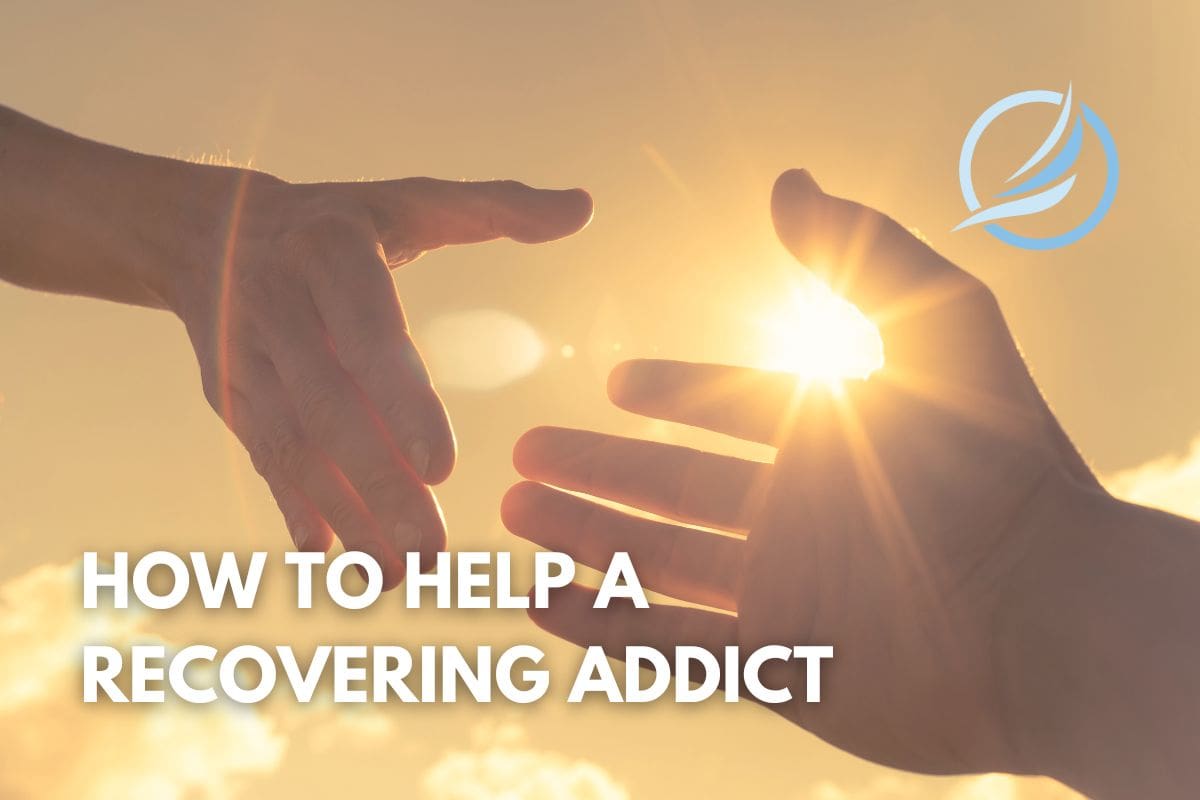Watching a loved one struggle with addiction can be heart-wrenching and often leaves you feeling helpless. However, your support can be pivotal in their recovery journey. Understanding how to support someone battling addiction (a recovering addict) effectively is crucial, not only for their path to healing but also for maintaining your emotional well-being. This article will explore seven essential tips that can empower you to provide the compassionate and effective support your loved one needs.
1. Educate Yourself About Addiction
Understanding addiction is the first step toward providing meaningful support to your loved one. Addiction is a complex condition, often misunderstood by those not experiencing it firsthand. It’s not merely a lack of willpower or a moral failing; it’s a chronic disease that affects the brain’s structure and function, leading to compulsive substance use despite harmful consequences.
How to Educate Yourself:
- Research: Start with reputable sources such as the National Institute on Drug Abuse (NIDA) or the Substance Abuse and Mental Health Services Administration (SAMHSA). These platforms provide information on addiction, treatment options, and recovery.
- Join Support Groups: Participating in support groups for families of people with an addiction can be enlightening. It provides an opportunity to learn from others in similar situations and share experiences and advice.
- Consult with Professionals: If possible, speak with addiction specialists or therapists. They can offer professional insights into your loved one’s condition and recommend specific ways you can help.
2. Practice Patience
Supporting a loved one through addiction recovery is a test of patience. Recovery is often non-linear, marked by successes and setbacks. Understanding and practicing patience can significantly impact your loved one’s journey and your well-being.
Demonstrating patience helps build trust. When your loved one sees that you are there for them, without judgment, through ups and downs, it strengthens your relationship and their confidence in the recovery process.
How to Practice Patience:
- Set Realistic Expectations: Understand that setbacks can be part of the recovery journey. Recognizing this can help you maintain a balanced perspective and reduce frustration.
- Seek Support for Yourself: Joining support groups or seeking counseling can give you the emotional support you need. Sharing your experiences with others can help you manage expectations and maintain a patient outlook.
- Celebrate Small Victories: Recognizing and celebrating small steps forward can help maintain a positive outlook and patience. Acknowledge the effort your loved one is making, even if progress seems slow.
3. Encourage Healthy Habits
Encouraging your loved one to adopt healthy habits is crucial to their recovery. Substance abuse can severely disrupt a person’s physical and mental health, and establishing a routine of healthy practices can aid significantly in their rehabilitation and overall well-being.
Engaging in healthy habits can help occupy the time that was previously spent on substance use, reducing boredom and temptation and lowering the risk of relapse.
How to Encourage Healthy Habits:
- Lead by Example: Adopting healthy habits yourself can be a powerful motivator. Share your experiences and the benefits you’ve noticed to inspire your loved one.
- Plan Activities Together: Engaging in healthy activities together, like walking, cooking a nutritious meal, or attending a yoga class, can provide support and make these practices more enjoyable.
- Encourage Social Connections: Social isolation can hinder recovery. Encourage your loved one to engage with supportive friends and family or join groups focusing on healthy living.
- Support Mental Health: Encourage practices that support mental health, such as journaling, meditation, or speaking with a therapist. Mental and emotional well-being is just as important as physical health in recovery.
4. Provide Emotional Support
Offering emotional support is a cornerstone of helping a loved one through addiction recovery. The emotional rollercoaster associated with recovery can be overwhelming, making your understanding, compassion, and presence invaluable.
How to Provide Emotional Support:
- Listen Actively: Offer your full attention when your loved one wants to talk. Listen without judgment, interruption, or unsolicited advice. Sometimes, simply being heard can be profoundly healing.
- Express Empathy: Try to understand and empathize with their feelings and experiences. Acknowledging their struggles and validating their emotions can make them feel supported and understood.
- Stay Patient and Consistent: Show that you’re there for them consistently, not just during their highs but also through their lows. Consistency provides a sense of stability and security.
- Take Care of Your Emotional Health: Providing emotional support can be taxing. Ensure you also care for your emotional well-being and seek support when needed.
5. Encourage Professional Help
Guiding your loved one toward professional help is critical in their recovery journey. While your support is invaluable, addiction is a complex condition that often requires the expertise of healthcare professionals and therapists. Addiction specialists and therapists have the training and experience to address the psychological, physical, and emotional aspects of addiction. They can offer strategies and treatments tailored to your loved one’s needs.
How to Encourage Professional Help:
- Research Options: Familiarize yourself with local treatment facilities, outpatient programs, and therapists who specialize in addiction. Having concrete options can make the idea of seeking help more manageable.
- Communicate Openly: Discuss the benefits of professional help with your loved one. Emphasize that seeking treatment is a sign of strength, not weakness, and it’s a proactive step towards recovery.
- Offer to Help with Logistics: The idea of seeking treatment can be daunting. Offer to help with making appointments, transportation, or researching insurance coverage to reduce initial barriers.
- Address Concerns: Listen to their fears and concerns about seeking professional help. Provide reassurance and counter fears with facts and positive outcomes from seeking professional assistance.
- Set Boundaries if Necessary: In some cases, setting boundaries or using tough love might be necessary to encourage a loved one to seek help, especially if their addiction is causing significant harm to themselves or others.
6. Learn About Their Triggers
Understanding the specific triggers that lead your loved one toward substance use is a crucial aspect of supporting their recovery. Triggers can be emotional, environmental, or social and vary significantly from person to person. By recognizing what specifically prompts your loved one’s substance use, you can help them avoid these triggers or develop coping strategies to deal with them more effectively.
How to Learn About Their Triggers:
- Encourage Open Dialogue: Create a safe and non-judgmental space for your loved one to discuss their triggers. Listen actively without offering solutions or criticism.
- Observe Patterns: Pay attention to your loved one’s behavior or mood patterns that may indicate an upcoming trigger. This can help in identifying less apparent triggers.
- Develop Coping Strategies Together: Once you identify triggers, work with your loved one to develop coping strategies. This might involve techniques such as deep breathing, distraction, or seeking social support.
- Respect Their Limits: If your loved one expresses that a particular situation or environment is a trigger, respect their need to avoid it, even if it seems insignificant.
- Stay Flexible: Triggers can change over time. What may be a trigger during one stage of recovery may not be in another. Stay open to the idea that the list of triggers may evolve.
7. Take Care of Yourself
Supporting a loved one through addiction recovery can be emotionally draining and physically demanding. It’s essential to prioritize your health and well-being to sustain the support you offer. Taking care of yourself ensures you have the energy, patience, and emotional strength to be there for your loved one.
How to Take Care of Yourself:
- Set Boundaries: Establish limits to ensure you’re not overextending yourself. It’s okay to say no or to take time for yourself when needed.
- Seek Support: Don’t try to handle everything alone. Contact friends, family, or support groups like Al-Anon to share your feelings and experiences. Consider seeking professional help for yourself if needed.
- Practice Stress-Relief Techniques: Engage in activities that reduce stress, such as meditation, yoga, reading, or whatever hobbies bring you joy and relaxation.
- Stay Connected: Maintain relationships with friends and family outside your caregiving role. Social support is crucial for your well-being and provides a necessary respite from your responsibilities.
- Recognize Your Limits: Acknowledge that you’re human and have limits. It’s okay to seek help and admit when you’re struggling.
- Celebrate Your Efforts: Recognize and acknowledge your effort to support your loved one. Allow yourself to feel proud of the hard work you’re doing.
Compassionate Support: The Key to Long-Term Recovery from Addiction
Compassionate support is not just about making someone feel better in the short term; it’s about fostering an environment that promotes long-term healing, growth, and recovery. By showing compassion, you provide a foundation of trust and understanding that can significantly impact your loved one’s journey toward a healthier, substance-free life. Remember, your support, patience, and understanding can make a monumental difference in their recovery process.


































